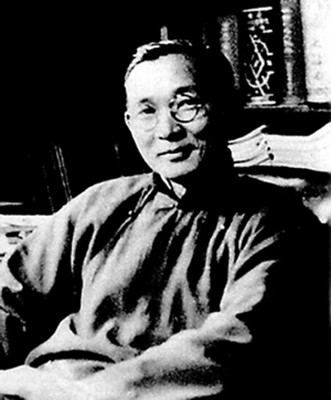In a true tea lover, the pleasure of handling all the paraphernalia is such that it is enjoyed for its own sake,
凡真正愛茶者,單是搖摩茶具,已經(jīng)自有其樂趣。
as in the case of Ts'ai Hsiang, who in his old age was not able to drink, but kept on enjoying the preparation of tea as a daily habit.
蔡襄年老時已不能飲茶,但他每天必烹茶以自娛,即其一例。

There was also another scholar, by the name of Chou Wenfu, who prepared and drank tea six times daily at definite hours from dawn to evening, and who loved his pot so much that he had it buried with him when he died.
又有一個文士名叫周文甫,他每天自早至晚,必在規(guī)定的時刻自烹自飲六次。他極寶愛他的茶壺,死時甚至以壺為殉。
The art and technique of tea enjoyment, then, consists of the following:
因此,茶的享受技術(shù)包括下列各節(jié):
first, tea, being most susceptible to contamination of flavors, must be handled throughout with the utmost cleanliness and kept apart from wine, incense, and other smelly substances and people handling such substances.
第一,茶味嬌嫩,茶易敗壞,所以整治時,須十分清潔,須遠(yuǎn)離酒類香類一切有強味的物事,和身帶這類氣息的人;
Second, it must be kept in a cool, dry place, and during moist seasons, a reasonable quantity for use must be kept in special small pots, best made of pewterfoil, while the reserve in the big pots is not opened except when necessary, and if a collection gets moldy, it should be submitted to a gentle roasting over a slow fire, uncovered and constantly fanned, so as to prevent the leaves from turning yellow or becoming discolored.
第二,茶葉需貯藏于冷燥之處,在潮濕的季節(jié)中,備用的茶葉須貯于小錫罐中,其余則另貯大罐,封固藏好,不取用時不可開啟,如若發(fā)霉,則須在文火上微烘,一面用扇子輕輕揮煽,以免茶葉變黃或變色。












